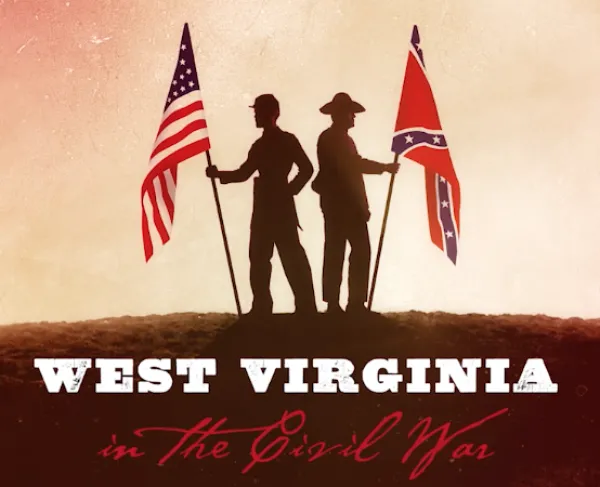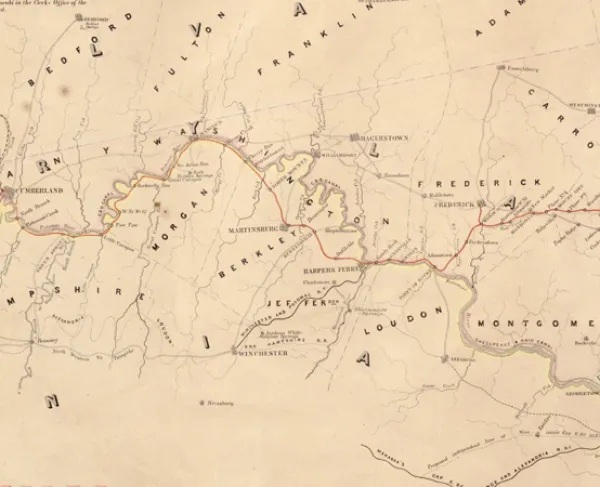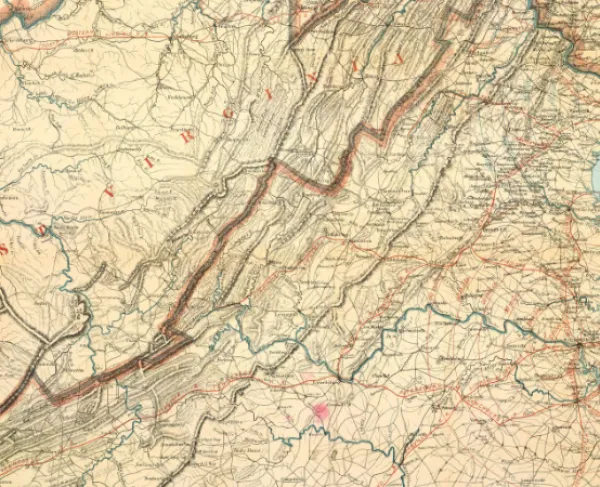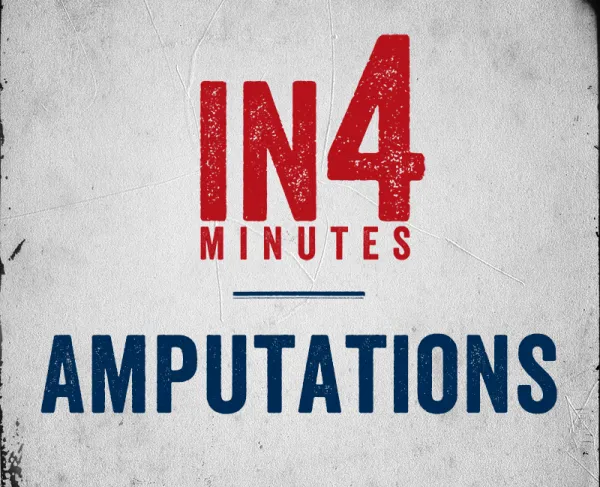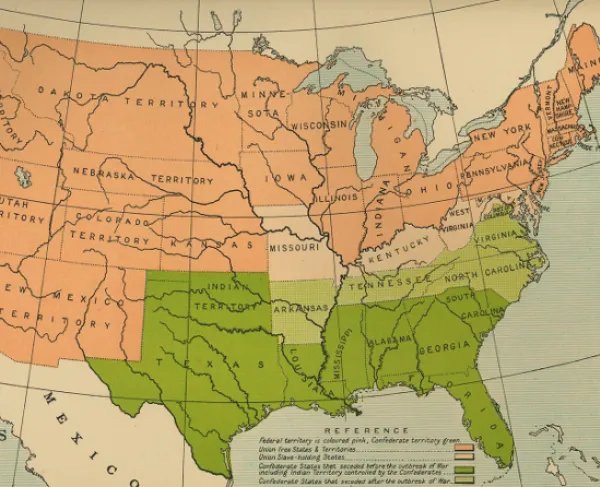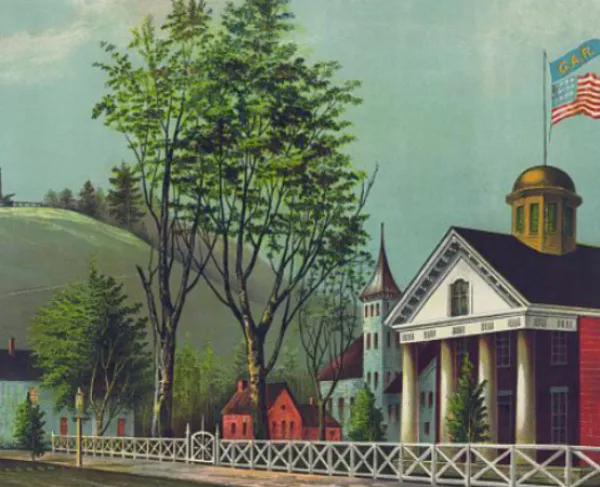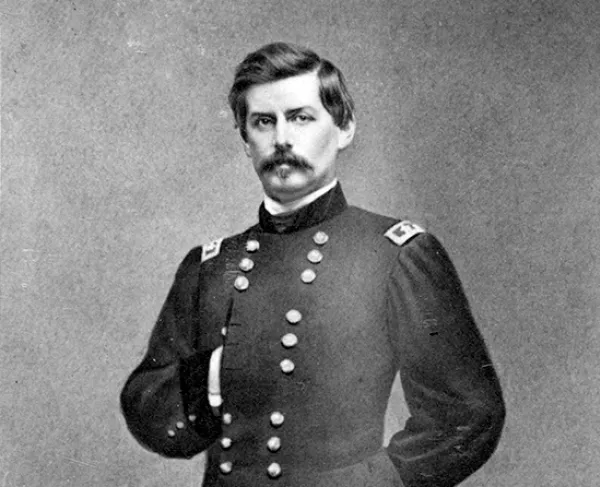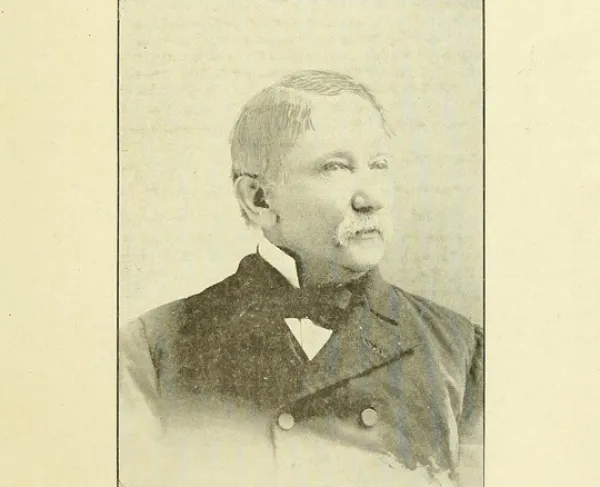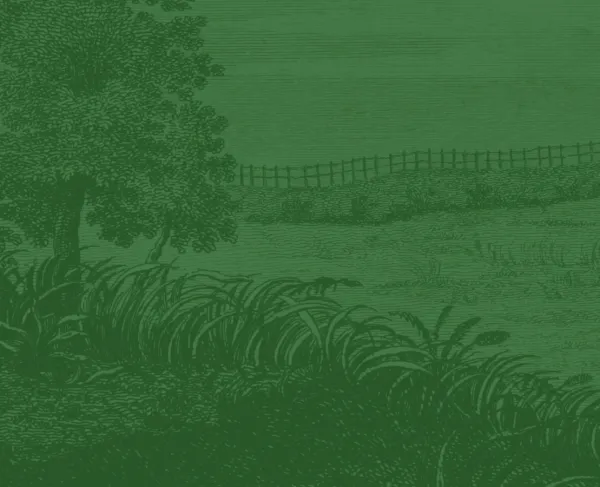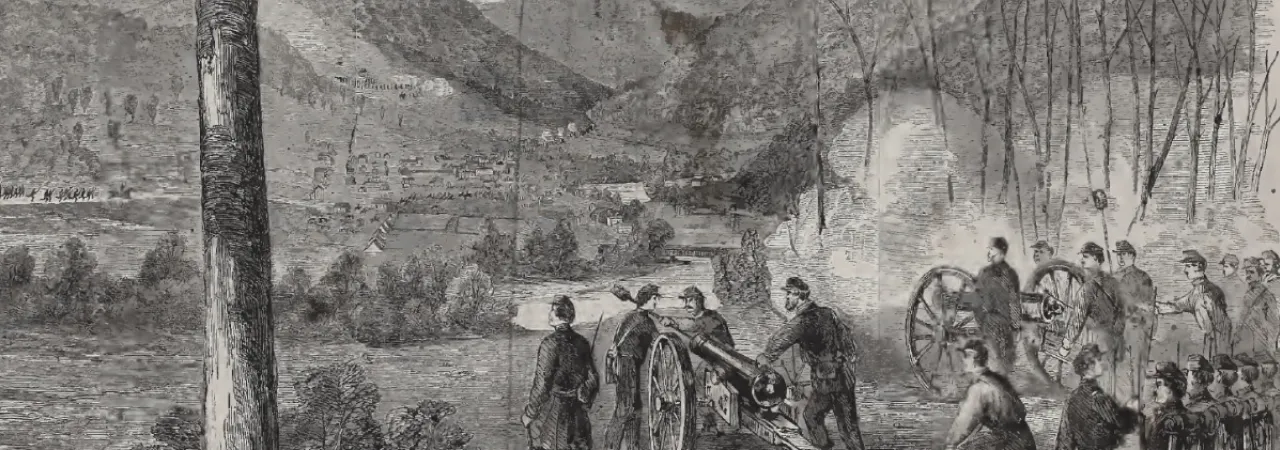
Philippi
Philippi Races
Barbour, WV | Jun 3, 1861
What would become the first organized land battle of the Civil War began from a Union attempt to protect railroads in Western Virginia. Union Major General George B. McClellan, months before he would become General-in-Chief, was commander of the Department of Ohio. He ordered troops to Western Virginia to protect the important Baltimore & Ohio Railroad and perhaps to open a path to Richmond.
McClellan ordered 3,000 men under Brig. Gen. Thomas A. Morris to the town of Philippi in Barbour County. They were sent to protect vital river crossings and an important rail junction. In the town of Philippi, Union commanders learned, was a concentration of about 800 newly recruited Confederate soldiers under Col. George Porterfield. Most of them were green, and they had not yet been organized into regiments.
Morris devised a pincer movement on the town. About 1,600 Union troops from Indiana, Ohio, and Western Virginia, under Col. Benjamin Kelley, would board trains east, feigning a move towards Harper’s Ferry. They would then disembark at the town of Thornton and march south to the backside of Philippi. At the same time, about 1,400 men under Col. Ebenezer Dumont, assisted by Col. Frederick W. Lander, one of McClellan’s aides, would march directly south to Philippi. Together they would surround the town; a pistol shot would be the signal to attack.
After an overnight battle fraught with rain, both contingents arrived at Philippi on the morning of June 3. Southern sympathizer Matilda Humphries saw the Union troops approaching and sent her son to warn Porterfield, but he was caught by Union pickets. During the confrontation between Humphries and the Union soldiers who accosted her son, she fired a pistol. The assembled men took it for the arranged symbol, and thus the attack began prematurely. The Confederates had failed to post pickets, so they were completely surprised when a Union artillery barrage awoke them from their slumber. Some were able to fire at the advancing Yankees but were unable to put up a solid defense. They soon broke and retreated to the south. Kelley’s men arrived on the wrong road and were unable to block their retreat; a chase ensued. Kelley was shot in the pursuit, while Lander performed a daring show of horsemanship, riding down a steep hill through underbrush. The Confederates would retreat all the way to Huttonsville, almost 50 miles to the south. The frantic retreat would cause journalists to dub the battle the “Races at Philippi.”
Although casualties were limited, this battle had significant impacts on the war, barely two months old. First, the victory propelled McClellan to the national spotlight; he would become commander of the Army of the Potomac in July. It also would bolster the morale of the Second Wheeling Convention, which would vote to nullify Virginia’s order of secession, leading Western Virginia on the path to statehood. At Philippi, some of the first battlefield amputations of the war occurred. Confederate James E. Hanger lost a leg in the fighting, but after he returned home, he created an artificial leg out of barrel staves with a hinge at the knee. After the war, he patented the design and founded what is now the Hanger Orthopedic Group, which is currently the United States’ leading prosthetics company.
Philippi: Featured Resources
All battles of the Operations in Western Virginia - June-December 1861 Campaign
Related Battles
3,000
800
4
26
